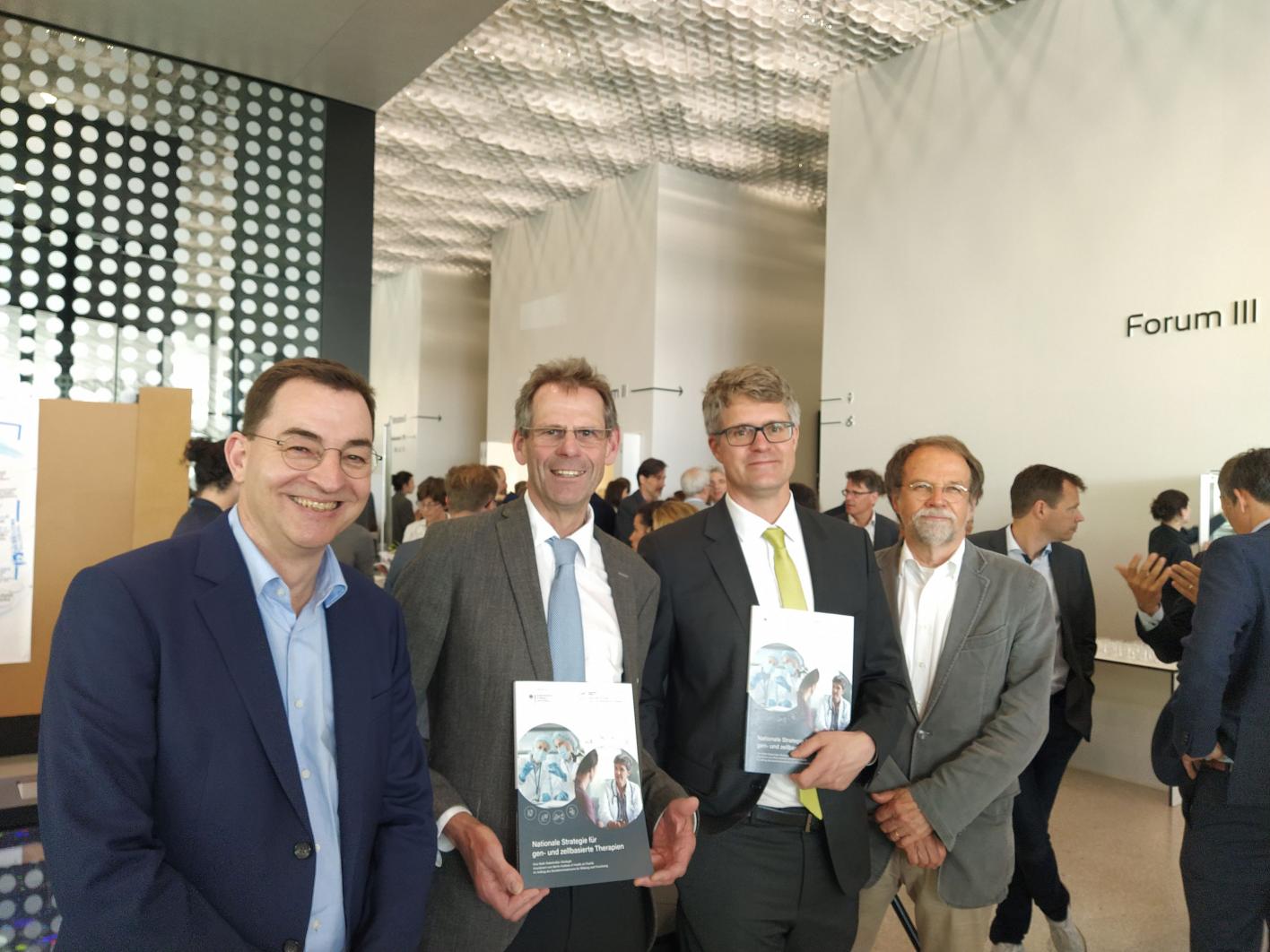Gene and cell-based therapies have proven in recent years that they can be the next quantum leap in the treatment of serious, previously incurable diseases. One well-known example is CAR T-cell therapy for the treatment of certain forms of blood cancer, in which the body's own immune cells are programmed to recognize tumour cells and cause them to die.
"Germany plays a leading role in gene and cell therapy research, but further development and value creation mostly takes place in other countries. As a result, patients are delayed in gaining access to innovative therapies. There are many reasons for this: among other things, there is a need for more streamlined processes in regulatory procedures, more intensive cooperation between research and industry and the training of new specialists," explains Sven Stegemann, Head of the Leibniz Joint Lab 'first in Translation' at the DWI - Leibniz Institute for Interactive Materials in Aachen. He is part of the expert committee that developed the National Strategy for Gene- and Cell-Based Therapies. By incorporating the perspectives of science, industry and society into the National Strategy for Gene- and Cell-Based Therapies, he explains, policy-makers have recommendations for action to set the course for both rapid access to innovative therapies and the creation of value from the potential in Germany.
Broad Aachen expertise incorporated
The National Strategy for Gene- and Cell-Based Therapies is divided into eight fields of action in which detailed goals and measures are proposed. With six participating scientists, Aachen is the most strongly represented science location in NRW: Sven Stegemann has contributed with his expertise in the areas of technology transfer and the qualified production facilities for gene and cell-based therapy products. From RWTH Aachen University Hospital, Hannes Klump (Institute for Transfusion Medicine and Cellular Therapeutics), Fabian Beier (Department of Hematology, Oncology, Hemostaseology and Stem Cell Transplantation) and Martin Zenke (Department of Hematology, Oncology and Stem Cell Transplantation) contributed to the fields of training and competence enhancement, market approval and application in healthcare as well as interaction with society. Robert Schmitt (WZL of RWTH Aachen University and Fraunhofer Institute for Production Technology) and Jørgen Magnus (Chair of Bioprocess Engineering) of RWTH Aachen University also contributed their expertise to the fields of action on technology transfer and qualified production facilities for gene- and cell-based therapy products.
Prof. Dr. Stefan Uhlig, Dean of the Faculty of Medicine at RWTH Aachen University, also emphasizes the importance of the National Strategy for Gene- and Cell-Based Therapies for Aachen as a medical research location: "Our goal is to establish Aachen as a translational hub for medical technology. Gene- and cell-based therapy fits in perfectly with this. This is also demonstrated by the many Aachen experts in this field." Translation hubs are specialized centers of university medicine that are dedicated to the transfer of basic scientific research results into new preventive, diagnostic or therapeutic procedures for use in humans.
Framework set for cooperation
Cell and gene therapy is a rapidly developing field, so the measures developed must take this dynamic into account. Sven Stegemann is specifically concerned with the necessary measures for the production and provision of gene and cell-based therapies for use in patients. The demand is increasing, he explains, and it is essential that appropriate manufacturing capacities are made available in accordance with the applicable guidelines.
In the field of action 'Expansion of quality and capacities in GMP production' (so-called Good Manifacturing Practice production), as spokesperson for this working group, he lists the needs-based establishment and expansion of qualified production infrastructures such as the Leibniz Joint Lab 'first in Translation', including the training of qualified personnel, as a high priority. "The establishment of a central committee for regulatory affairs in gene- and cell-based therapy, which continuously analyzes the demand and drives it forward accordingly, is also seen as essential in our working group. In this way, it can be ensured that the necessary investments are made quickly and in a targeted manner and that the existing strengths in gene and cell-based therapy in Germany are effectively expanded," says Stegemann. This is the only way to ensure that Germany as a research and production location can play a leading role in international competition. "We have every opportunity to maintain and further expand technological sovereignty in cell and gene therapy in Germany. Now is the time to make use of them," concludes Stegemann.
In fall 2022, the Berlin Institute of Health at Charité (BIH) was commissioned by the BMBF to coordinate the development of a national strategy for gene- and cell-based therapies. In the period from October 2023 to May 2024, around 150 appointed representatives from the fields of science, industry, politics and society worked in eight working groups with organizational support from the BIH to develop the document on the National Strategy for Gene- and Cell-Based Therapies. The document identifies the challenges in the various fields of action and proposes appropriate measures for implementation.

